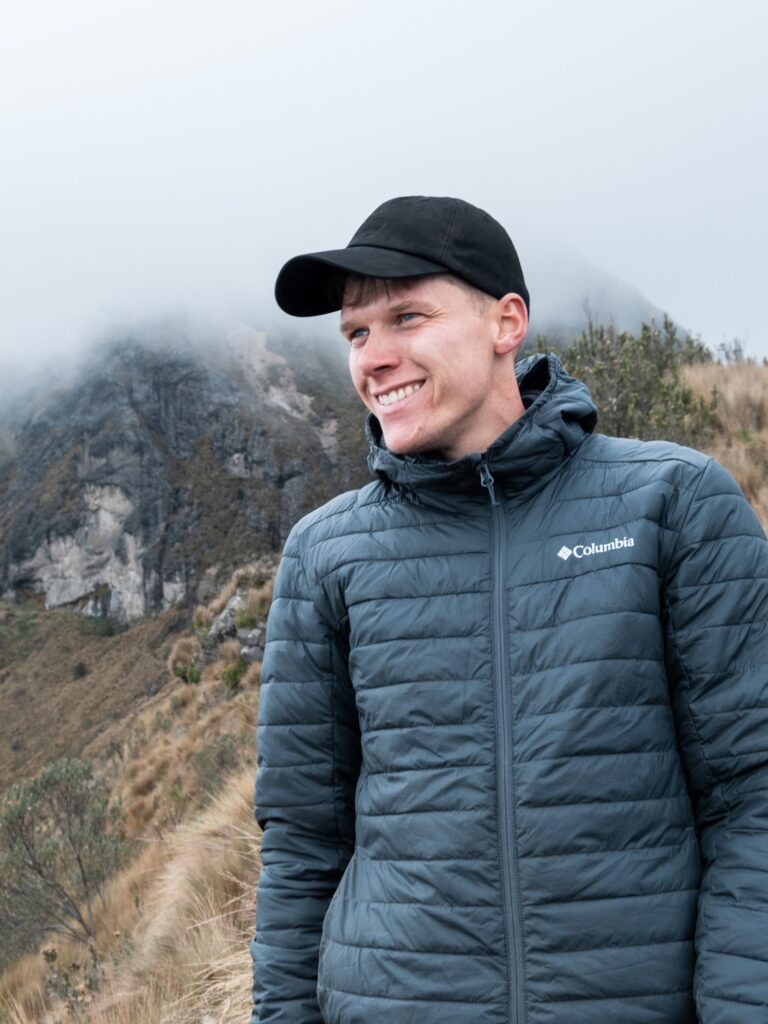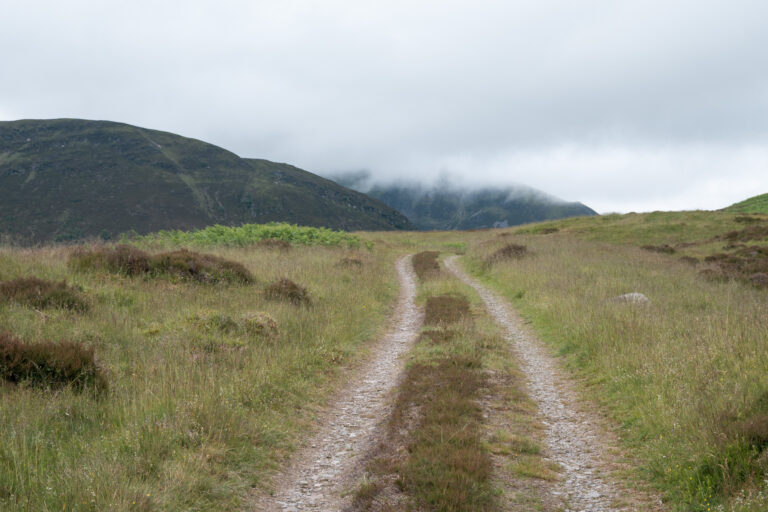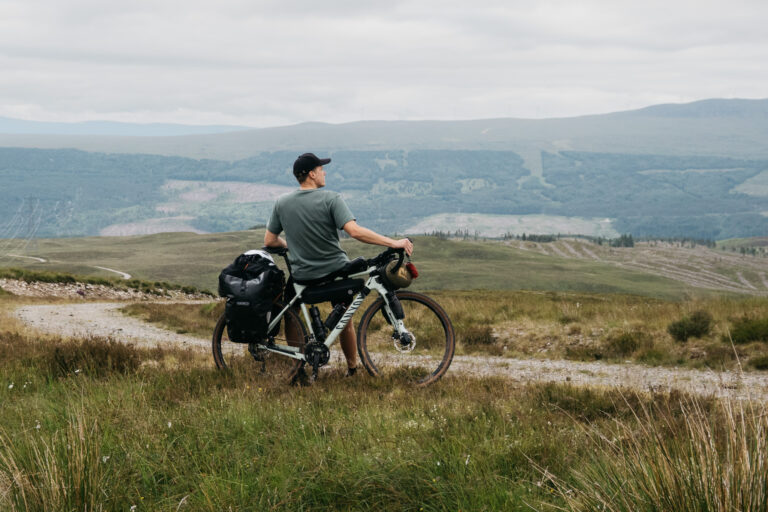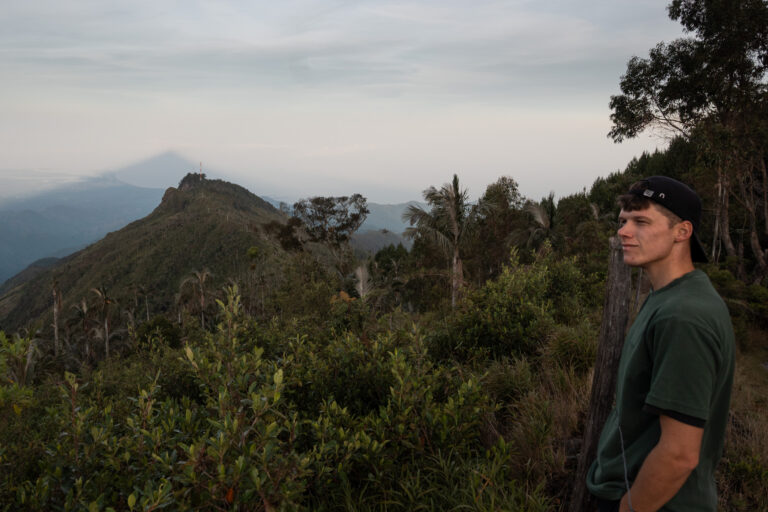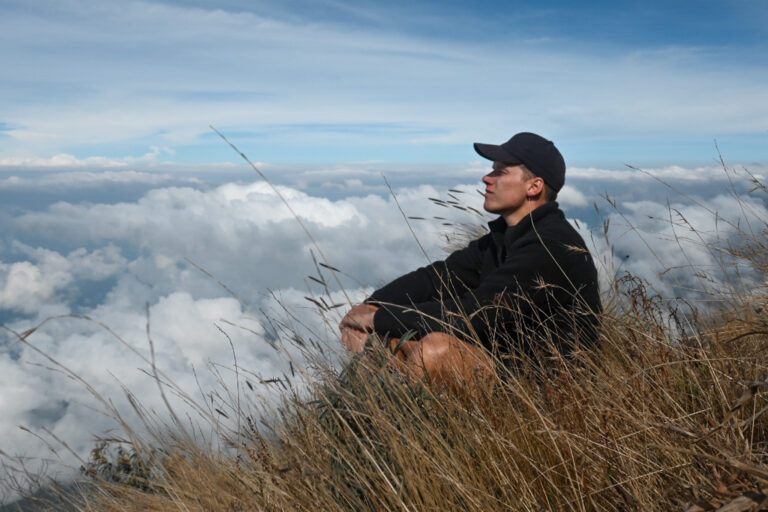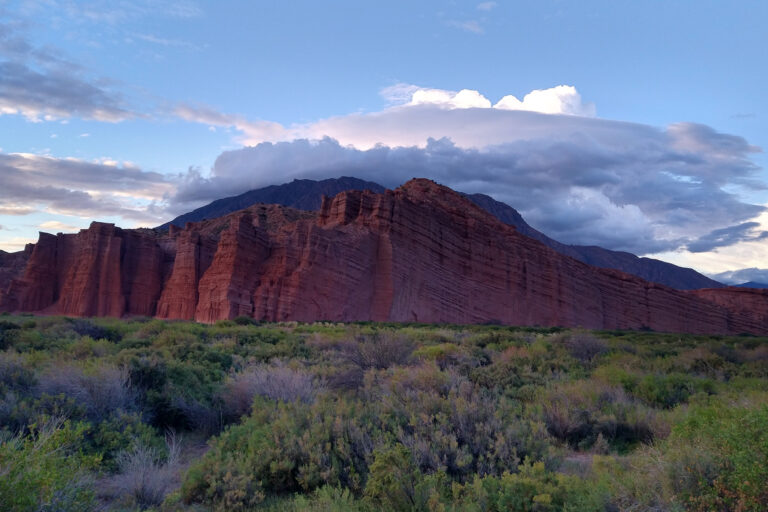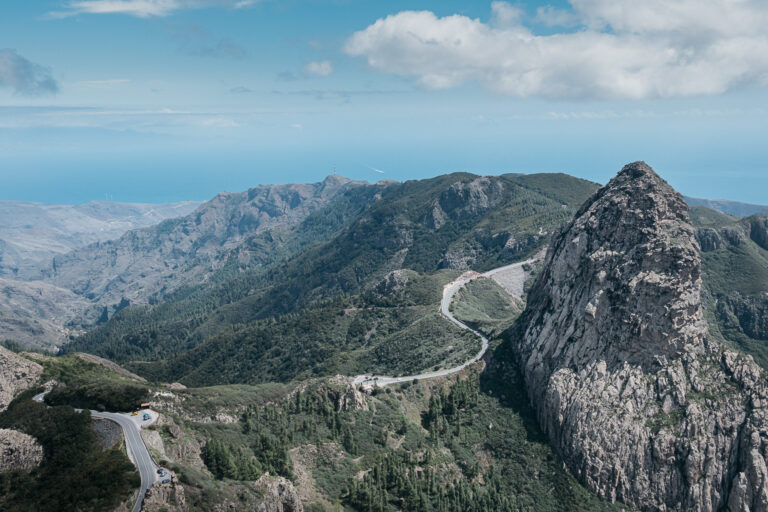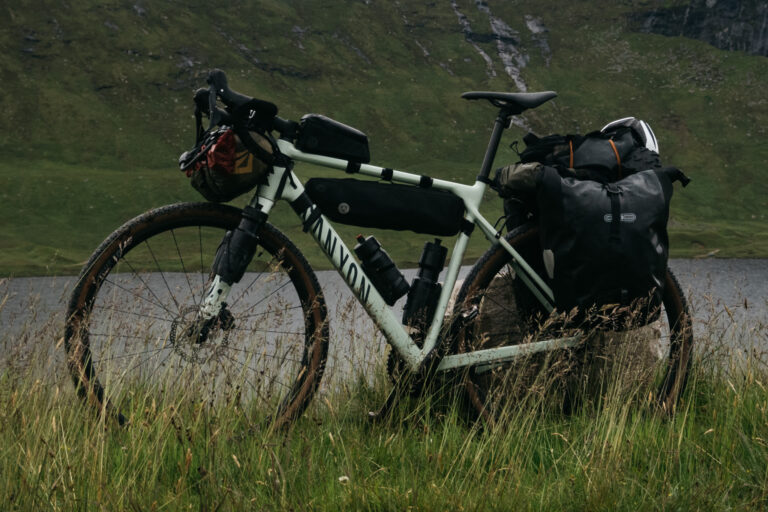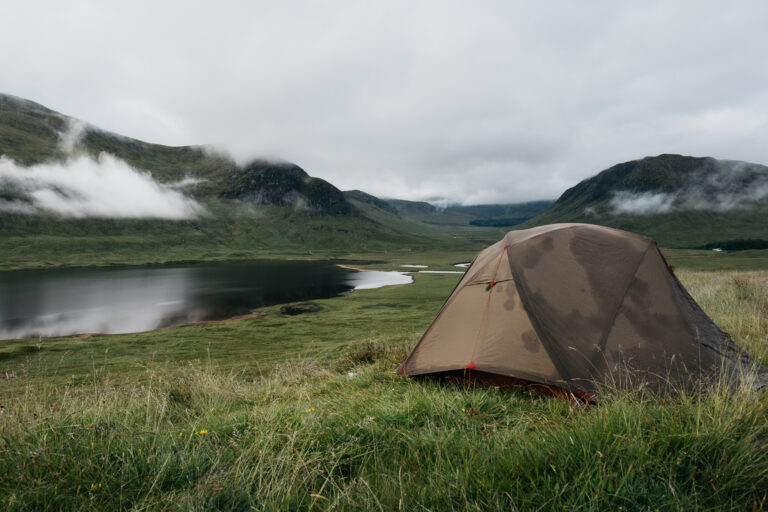The 5 big advantages
#1 An overnighter helps you discover whether your gear is complete for the journey ahead.
In Norway, I met a German couple at the campsite in this beautiful place called Flåm. They were bikepacking as well and had just arrived in Norway. That day was their very first camping day of the trip and they obviously hadn’t done an overnighter.
We were pitching our tents at the same time and had a little talk back and forth. I had already been bikepacking for a while, so I knew all my gear was complete and for me everything went fine, but things were different for them.
Apparently, they hadn’t done an overnighter to make sure all their stuff was complete, because when pitching their tent they discovered that they forgot to bring something important: their tent poles. They searched again in the bags and looked everywhere in the grass, making sure they didn’t drop it, but unfortunately with no results. Tent poles are obviously not something you can replace easily.
Moral of the story: doing an overnighter is crucial to make sure your gear is complete and everything works well.
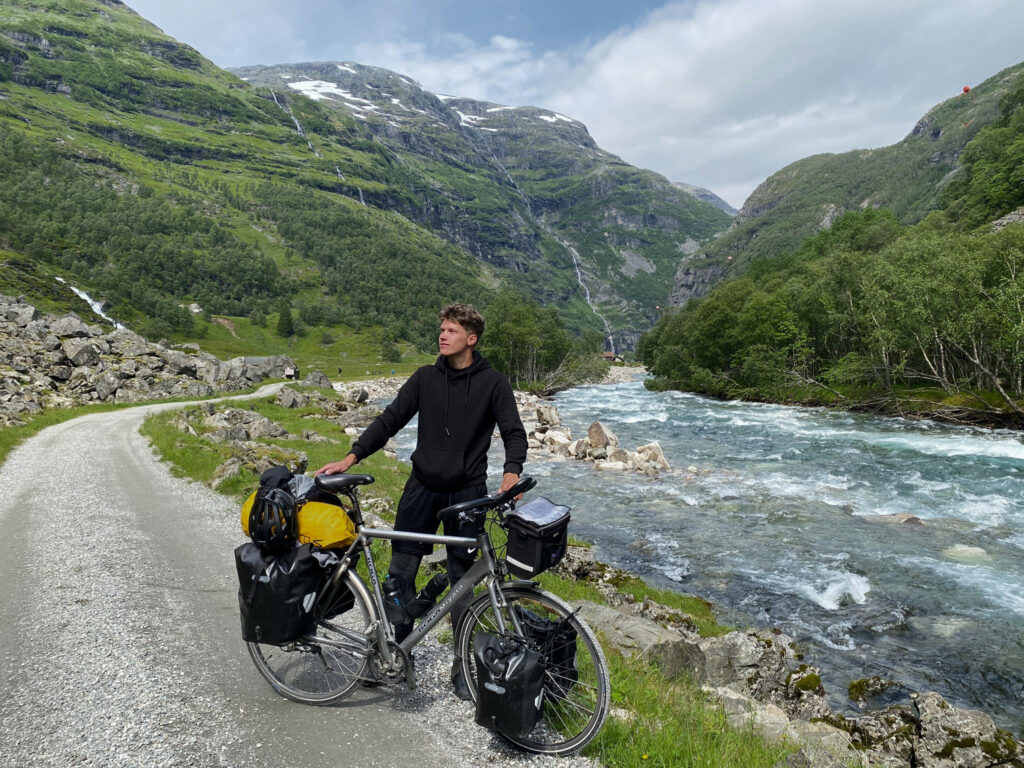
Advantage #2 An overnighter helps you discover what to bring, and what to leave at home.
Besides making sure that your equipment is complete, an overnighter will also give you insights into what to leave at home.
If you have already gone bikepacking before, you probably have certain items or clothing that you absolutely no longer take with you. I remember a couple of things that I took with me on my first bikepacking trip to the southwest of France, and literally never used that whole trip such as:
- A spice jar for camping with 6 different spices (I only used the salt)
- A jacket that wasn’t either waterproof or windproof and in which I sweated a lot
- A heavy, big book that took up a lot of space as well
Doing an overnighter will help you get an insight into which items you can leave at home. This will save you weight and space.
If you’re unsure whether you’ll use it, DON’T PACK IT.
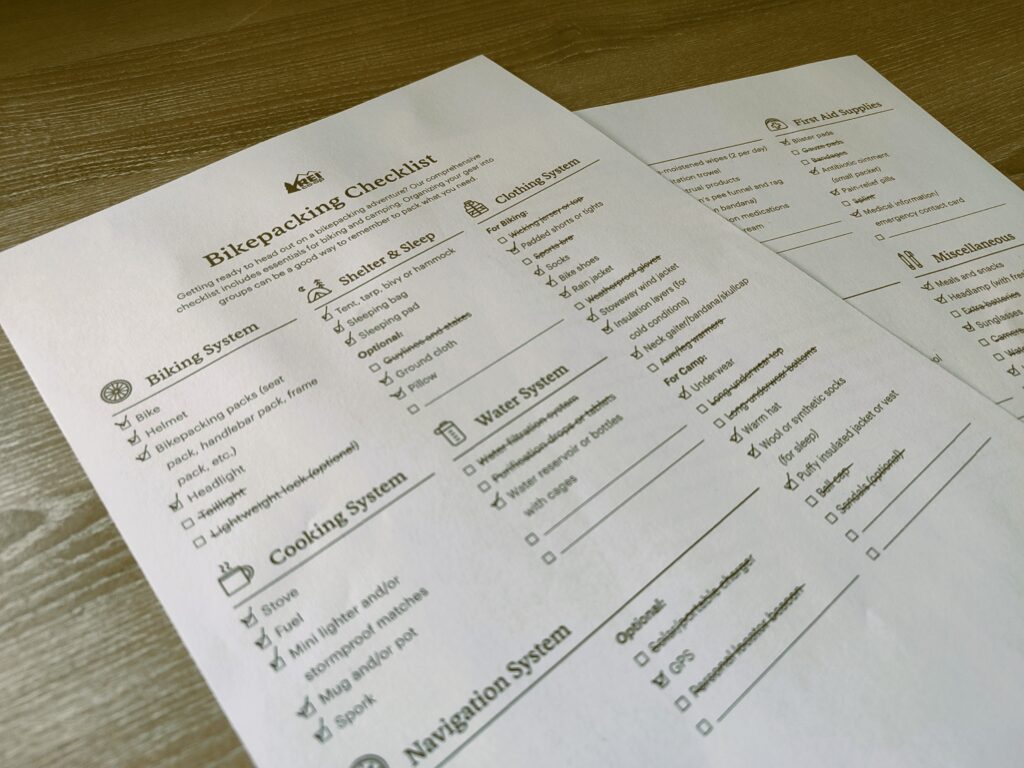
Advantage #3 An overnighter helps you figuring out if your equipment is working properly.
Some of your equipment or items may not function well or might be damaged.
An overnighter allows you to test your gear. Think of your bicycle, tent, sleeping bag, stove, cutlery, electronic devices, etc.
In 2021, during a bikepacking trip to Germany, I skipped the overnighter as part of my preparation. On the second day, I found myself at the door of a Belgian bicycle repair shop. My chain wasn’t fitting properly in the sprocket, so it would every so often jump while cycling. Don’t make the same mistake. Before starting your trip, make sure everything is working well.
An overnighter helps you identify issues or missing items. That way, you can tackle the problem before you’re far from home or in a remote area far from civilization.
Also, it will help you get familiar with your gear, especially if you’re using new equipment. Learning how to set up and use your gear efficiently will save time and reduce stress on the longer trip.
Finally, testing your gear beforehand will save you embarrassment in front of your cycling companions or camp neighbours (yes, been there).
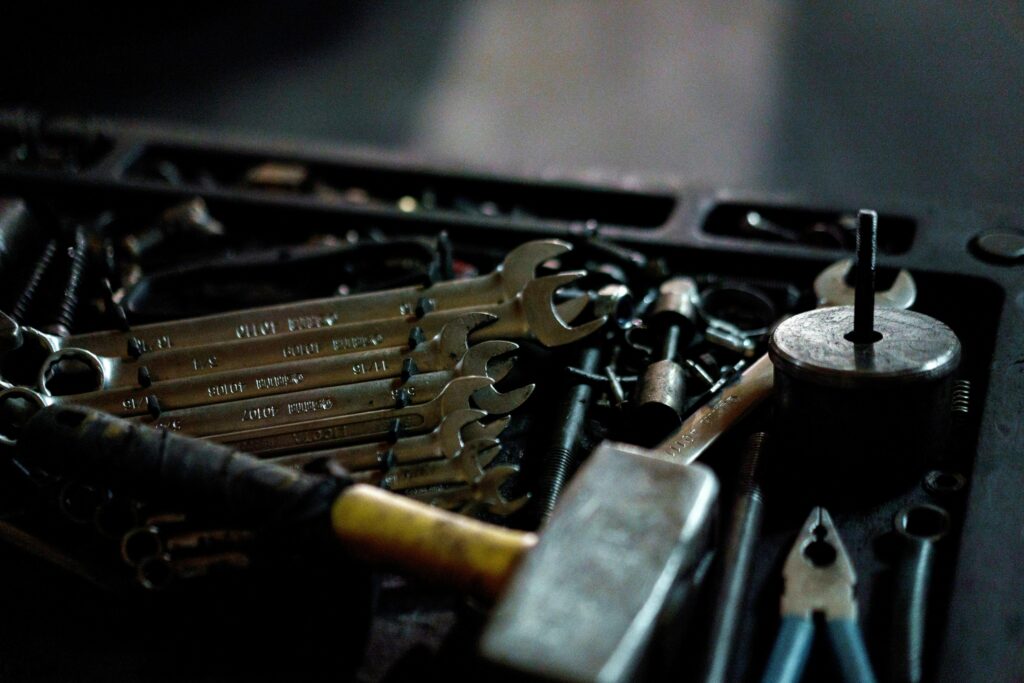
Advantage #4 An overnighter helps you planning your meals and what to bring.
It gives you insight into how much food and drinks you have to consider taking with you per day.
Not eating well has consequences. Your energy levels will decrease and exhaustion will set in faster.
When bikepacking it is an art to gain insight into this as clearly as possible. Since you have to carry that extra weight with every pedal stroke, finding the right balance is crucial.
Depending on which area you’re cycling in, it might be wise to bring a buffer for a few days. In some countries, supermarkets or shops may be closed at certain times or on Sundays, or you may simply not encounter anything on your route.
Another benefit of planning your meals in advance is that it’ll help you keep lower costs. Planning and buying ahead of time will reduce the chance of you having to buy from an expensive restaurant or small market in the middle of nowhere.
Also, it is important to pay attention to lightweight foods that are full of beneficial nutrients such as: calories, carbohydrates, proteins, sugars and fats. Consider foods like; oats, nuts, dried fruits, black chocolate, muesli- or protein bars, etc. But these are just a few examples.
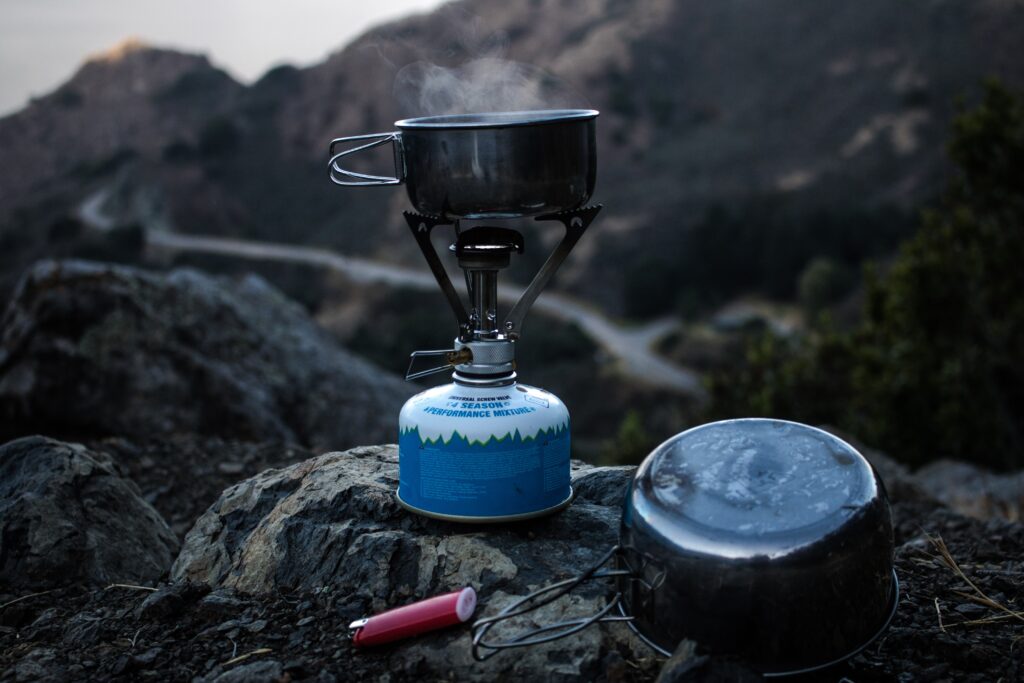
Advantage #5 An overnighter helps you with mental preparation and building confidence.
The last advantage of doing an overnighter is the mental preparation and confidence it’ll give you.
Doing an overnighter will help you make sure that everything works well, that your stuff is complete. It will help you feel well-prepared. It makes you feel comfortable and ready for the (long) journey ahead. It’s simply a mini-preparation.
Those first few days can undoubtedly feel scary. I remember my very first bikepacking day very well. I cycled away from home, into Belgium, and thought to myself, chuckling but also a little worried: What on earth have I gotten myself into?
Looking back, I’ve learned a lot. There are many things I do differently now. In the beginning, you will simply make mistakes, you’ll find out what works, and what doesn’t work for you.
After all, I think the beginning might be one of the best parts. You’ll definitely remember those first days on the bike!
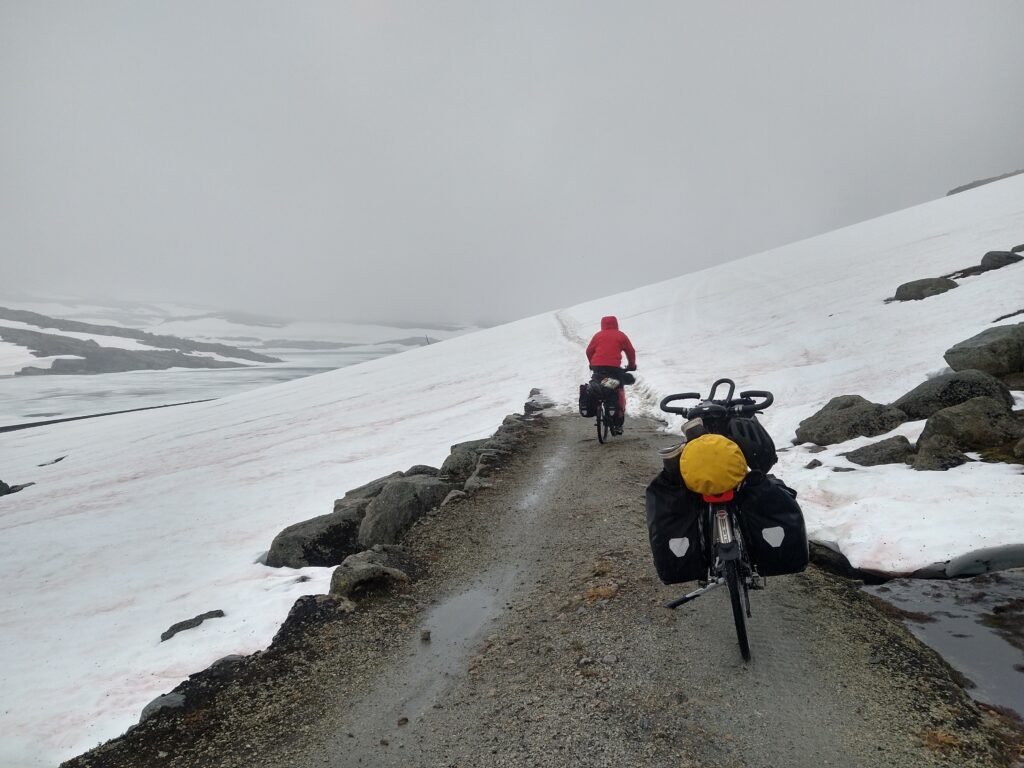
An overview with all advantages of doing an overnighter.
- You’ll discover whether your gear is complete for the journey ahead.
- You will discover what to bring on your trip, and what to leave at home.
- You’ll figure out if your equipment is working properly.
- You will learn how to plan your meals and what to bring.
- It will help you with mental preparation and building confidence.
Feel free to check out my Instagram, where I regularly share travel stories, hiking guides, and tips and tricks. I’d love to have you along for the journey!
– Bart
